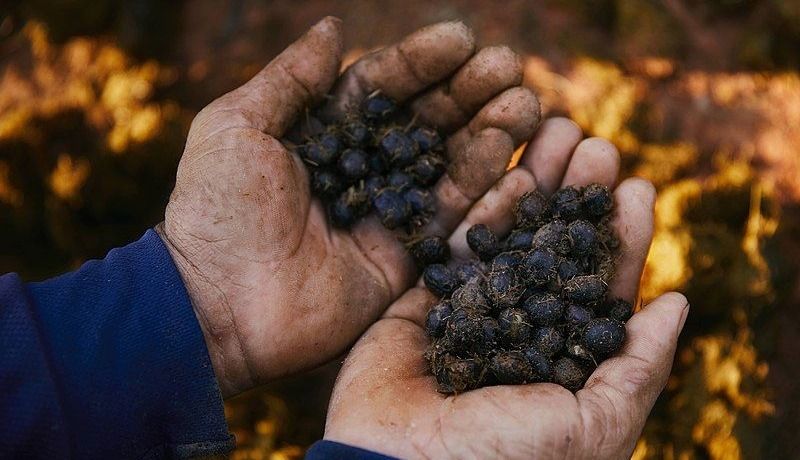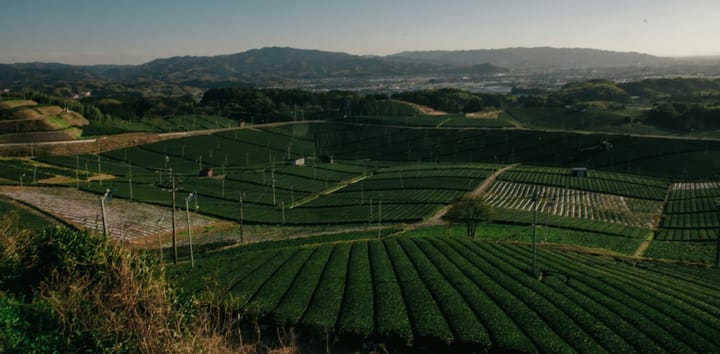Why Is Black Ivory Coffee So Expensive?
The World's Rarest Coffee Originates From an Unexpected Source: Elephant Droppings

Black Ivory Coffee is among the world's rarest and expensive coffee, produced in northern Thailand using a unique method involving Thai elephants. It stands as the second most expensive, following closely behind the world's priciest, Panama Geisha
What Is Black Ivory Coffee?
The coffee surpassing the fame of Kopi Luwak originates from elephant waste. The elephants consume the coffee cherries, and the beans are later collected from their dung, cleaned, and processed. This natural fermentation in the elephant's digestive tract reduces the coffee's bitterness, resulting in a smooth, luxurious cup. The labor-intensive process, limited output, and distinctive flavor make Black Ivory Coffee highly sought after globally.

Part of what elevates this coffee to a pinnacle of exoticness is its distinctive production method. The beans, as they navigate the elephant’s internal tract, acquire unparalleled flavors and nuances. Additionally, compared to civets, these elephants enjoy optimal living conditions.
Priced at approximately US$50 per serving, this premium brew is tailored for those with a penchant for novel experiences.
The Origin of Black Ivory Coffee
Blake Dinkin, a visionary from Canada, birthed the concept of Black Ivory Coffee in 2012. For a decade, he devoted immense effort, time, and resources to refine this unique coffee blend.
The journey of its creation was neither swift nor straightforward. He embarked on a long quest to perfect every aspect of its production - from selecting the perfect location and bean variety to assembling a dedicated team.
Now, the coffee is cultivated in the Golden Triangle region of Thailand. Emphasizing both social and ecological responsibility, the enterprise collaborates exclusively with local communities. Numerous mahouts (elephant trainers) and their families rely on this coffee's production as their primary source of income.
The Price of Black Ivory Coffee
Priced at US$3,000 per kilogram, Black Ivory Coffee ranks as one of the world's priciest brews. Exclusive luxury hotels are the primary clientele for the producer, offering it for US$50 a serving. Additionally, this premium coffee is available for purchase online.
Why Is The Ivory Coffee So Expensive?
Black Ivory Coffee's steep price tag can be attributed to several factors:
1. Unique Production Method
The production of Black Ivory Coffee involves a unique process with elephants in the secluded village of Surin, Thailand.
Initially, experts select the finest Thai Arabica cherries, cultivated at an elevation of 1500 meters. These cherries are then transported to Surin. Here, caregivers for the elephants incorporate these cherries into a mix of the pachyderms' preferred foods, including rice, bananas, sugar cane, and the tropical fruit known as tamarind. This specialized blend, tailored to each elephant’s preference, provides them with essential nutrients.
The elephants consume the coffee cherries, which are then naturally processed in their digestive system. This not only imparts a special flavor to the beans but also means the process cannot be hastened.
During digestion, enzymes within the elephant’s system act upon the proteins in the beans, which typically cause bitterness.
Given that elephants predominantly consume a plant-based diet, this process also leads to the fermentation of the beans. As a result, the bean absorbs sugars from the cherries and adopts its fruity flavor, while simultaneously seeing a reduction in acidity.
2. Inefficiency Digestion of The Elephants
Thereafter the consumption of coffee cherries, the digestion phase lasts anywhere from 12 to 72 hours. This process involving elephants isn't exactly efficient.
To produce just 1 kilogram (2 pounds) of Black Ivory coffee, 33 kilograms (72 pounds) of fresh coffee cherries are needed. Many of the beans are damaged, ground down during chewing, or misplaced in high grass once excreted by the elephants.
3. Labor-Intensive Harvesting
After the elephants expel the cherries, gatherers carefully select each one. These cherries then make their way to a nearby school where students, earning compensation, meticulously wash and spread them out for drying.
Subsequently, these cherries undergo sun drying until they reach the desired moisture content, optimizing their quality. Manual sorting follows, discarding any imperfect cherries and retaining only the largest ones for uniform roasting. This requires a lot of manual labor.
4. Limited Production
The rarity and limited quantity of the coffee beans add to the cost. With restricted production figures in 2023, with an estimated distribution of 225 kg (495 LBS), Black Ivory Coffee holds the distinction of being the world's most exclusive coffee. the scarcity of the product drives up its value.
5. Quality Control
After the beans are collected and cleaned, they undergo stringent quality checks. Only the best beans are selected, ensuring a top-notch end product but further reducing the yield.
Dinkin points out that there's more to the coffee's uniqueness than just the slower cooking process. He obtains his Arabica beans from the hill tribes located in northern Thailand, close to the Myanmar border. The method for drying is extended, and the roasting is meticulously calibrated.
The Black Ivory Coffee Company asserts that they select premium Thai Arabica beans for processing via their elephants' digestive systems. Furthermore, the company emphasizes its dedication to saving elephants from unauthorized practices, ensuring their health and well-being are overseen by professionals.
6. Roasting in Small Batches
The beans are roasted in small batches to ensure maximum freshness, which means a more hands-on approach and, consequently, higher costs. The beans are freshly roasted in limited batches, typically weighing 3 kilograms each, to guarantee peak freshness. Once roasted, they're sealed in valve bags, ready for international distribution.
7. Social Responsibility
Part of the price consumers pay might also be directed towards the welfare of the elephants and ensuring that they are kept in good conditions. Plus, supporting local communities and providing fair wages to workers also factors into the cost.
This coffee venture offers a fresh start for elephants and their handlers, known as Mahouts. Black Ivory Coffee commits 8% of its revenue to the Golden Triangle Asian Elephant Foundation, emphasizing the preservation and well-being of elephants.
Thanks to the foundation, elephants that have faced neglect or abuse in Chiang Saen, Northern Thailand, find refuge in the Golden Triangle Elephant Sanctuary.
In this sanctuary, the elephants receive exemplary care and are provided a diverse and natural diet, which occasionally includes coffee cherries. There's no coercion in their diet; elephants consume the coffee cherries willingly and excrete them naturally.
Producing Black Ivory Coffee not only offers financial benefits for the families looking after the elephants but also aids local high school students who participate in the coffee cleaning and drying processes. The income they receive often caters to elder family members, health care, educational expenses, sustenance, and apparel.
8. Luxury Coffee Experience for Elite Market
The primary market for Black Ivory Coffee is high-end establishments like five-star hotels, including Anantara (Bangkok, Phuket & Maldives), The Siam (Bangkok), Paresa Resort (Phuket), Sovena Fushi, Grand Hyatt (Bangkok), Banyan Tree (Phuket), MGM Grand (Macau), Taj (Maldives) The Athenee (Bangkok), The Ritz Carlton (Canada) making it a luxury product and positioning it at a higher price point.
Alternatively, you can purchase the coffee directly from their official website
Taste Characteristics and Aroma of Black Ivory Coffee.
Upon tasting, we discerned a fresh grassy note, remarkably free from any bitterness. As the coffee cooled slightly, a rich chocolatey note emerged, complemented by a pronounced leathery texture. Intriguingly, the initial fruitiness seemed to fade at this stage. This ranks among the most intricate and robust coffees we've ever tasted.
The flavor profile stands out, maintaining a harmonious acidity. Savoring this velvety brew was an experience we wished would never end. What particularly stood out was the creamy aftertaste with each gulp. The final notes were rich, dominated by chocolate and caramel flavors, leaving us with a yearning for another cup.
For the best experience with Black Ivory Coffee, the recommended brewing technique is the balancing syphon method. This approach heats without boiling, preserving the coffee's gentle, tea-like consistency.
Combining all these elements, it's evident why Black Ivory Coffee is one of the most expensive coffees in the world.
Are Elephants Harmed In The Production of Black Ivory Coffee?
A common query raised is about the potential harm caffeine might cause to elephants. The response is clear: there's no harm.
The brand clarifies that the elephants mostly consume the entire cherry, ensuring the bean's protective covering keeps its essential oils intact. Additionally, only heat can release caffeine. Hence, at no point do the elephants encounter the caffeine, ensuring the beans are safe for their well-being.
Who are Mahouts and What Role Do They Play?
Elephants don't just serve as a rescue mission in Thailand; they are deeply intertwined with Thai culture. This bond gave rise to the profession of 'mahouts,' or elephant keepers, a term that has its roots in Hindi.
Historically, being a mahout was a respected vocation where one would commit to caring for an elephant throughout its life, ensuring its wellbeing. But as times changed, so did the circumstances of these caretakers.
Nowadays, numerous mahouts and their elephants work in challenging conditions, often for minimal pay in tourist resorts. For many mahouts, their livelihood is solely dependent on their elephant. This has led to undesirable work environments, sometimes even devoid of basic pay, relying only on tourist tips.
Understanding this, certain Thai organizations that champion elephant welfare also prioritize the wellbeing of mahouts. Their mission is to uplift both the elephants and their caregivers. These foundations lease the elephants to offer them proper shelter, natural habitats, and medical attention. Simultaneously, they provide essential amenities, healthcare, accommodation, and insurance for the mahouts and their dependents, ensuring they aren’t forced into exploitative work.
Black Ivory Coffee's initiative extends beyond employing mahouts; they actively support their families as well. They place an emphasis on education, particularly around environmental topics, preparing the younger generation to mitigate potential future clashes between elephants and humans. Additionally, local students are taught the art of washing and drying coffee beans, earning income that augments their household's financial stability and paves the way for future academic pursuits.
What Are The Health Benefits Of Drinking Black Ivory Coffee
While many rave about the taste and ethical sourcing of Black Ivory Coffee, it also boasts significant health advantages. Though it's unclear how much caffeine remains in coffee beans after being processed by elephants, these beans are inherently packed with antioxidants and vital minerals.
Remarkably, coffee beans often surpass tea leaves in their antioxidant content. This suggests they might offer protection against ailments like heart disease, diabetes, and certain cancers. The rich concentrations of magnesium and potassium in the beans may promote muscle relaxation and help lower blood pressure. Plus, the abundance of B vitamins can potentially uplift one's mood and boost energy levels.


